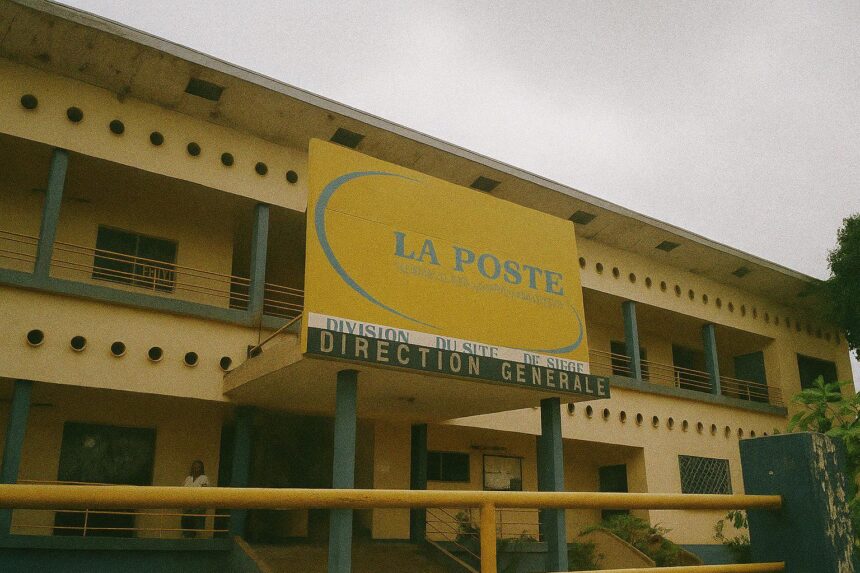Postal codes as a catalyst for modern logistics
In a decision quietly historic yet profoundly strategic, the Council of Ministers in Brazzaville has endorsed a decree that introduces a nationwide postal-code architecture. The reform, championed by Minister of Posts, Telecommunications and the Digital Economy Léon Juste Ibombo, promises to turn the art of delivering an envelope into a data-driven science. While postal codes may seem mundane in countries where they have existed for decades, their absence in the Republic of Congo has long complicated last-mile logistics, elevated transaction costs and deterred serious investment in e-commerce platforms. By replacing manual guesswork with geocoded precision, the decree is intended to streamline the operational backbone of the postal service and, by extension, of the broader economy.
- Postal codes as a catalyst for modern logistics
- Aligning with Universal Postal Union benchmarks
- Digital transformation embedded in national planning
- Socio-economic dividends of precise addressing
- E-commerce and AfCFTA: From aspiration to logistics
- Implementation timeline and capacity challenges
- Diplomatic optics and the narrative of reform
- Measuring success beyond the sorting center
Aligning with Universal Postal Union benchmarks
Congo’s move brings it in line with the Universal Postal Union’s recommendation that reliable address systems underpin efficient cross-border commerce. Seventy percent of member states have already completed codification, according to the UPU’s 2022 Addressing the World report. In Central Africa, Cameroon and Gabon finalised similar projects during the past decade, citing notable gains in delivery accuracy and customs processing times. By adhering to these benchmarks, Brazzaville positions itself to participate more actively in the UPU’s electronic advanced data initiatives, an increasingly vital requirement amid global security protocols and pandemic-era health screenings at ports of entry.
Digital transformation embedded in national planning
The codification decree dovetails with the National Development Plan 2022-2026, whose digital-transformation pillar seeks to diversify an oil-dependent economy. Officials note that reliable addresses will unlock value for fintech start-ups, ride-hailing services and delivery apps that currently navigate by landmarks rather than street numbers. Congolese start-up founders interviewed by the journal Afrique IT complain that drivers routinely lose thirty to forty minutes on each dispatch inside Brazzaville’s dense arrondissements. A cohesive postcode grid could reduce such inefficiencies and help propel the nascent tech ecosystem toward the government’s target of a ten-percent digital contribution to GDP by 2026.
Socio-economic dividends of precise addressing
Beyond the parcels criss-crossing the Sangha and Kouilou, accurate addressing has a social dimension. The World Bank’s Identification for Development initiative argues that formal addresses facilitate financial inclusion by enabling the opening of bank accounts and mobile-money wallets. In many Congolese municipalities, households rely on verbal directions and community familiarity, a custom now strained by rapid urbanisation. The national census projects Brazzaville’s population to swell past two million by 2030. A refined postcode system will help municipal authorities map service delivery, emergency response and tax collection with far greater clarity, thereby strengthening governance without imposing new burdens on citizens.
E-commerce and AfCFTA: From aspiration to logistics
Africa’s nascent Continental Free Trade Area hinges on the ability of goods to move seamlessly across borders. Speaking on the sidelines of the AU Specialized Technical Committee in Addis Ababa last month, a senior Congolese trade negotiator remarked that our digital single market cannot exist atop analogue infrastructure. A functional postcode becomes indispensable once Congolese artisans sell fashion accessories to clients in Accra or Nairobi via online marketplaces. DHL Express analysts estimate that countries with mature postcode systems process cross-border returns twenty-five percent faster, a metric crucial for trust in online transactions. As Accra readies the AfCFTA secretariat to launch a continent-wide e-commerce protocol, Congo’s reform looks both timely and geopolitically astute.
Implementation timeline and capacity challenges
Officials have announced a phased roll-out beginning with Brazzaville and Pointe-Noire before extending to all twelve departments over a two-year horizon. The national postal operator, La Congolaise des Postes et Télécommunications, will pair geospatial mapping data with field surveys in peri-urban areas where streets lack formal names. The Ministry is exploring public-private partnerships for address verification services, hinting at potential collaboration with companies that have developed digital addressing solutions in Ghana and Nigeria. Analysts caution, however, that sustainable funding and public awareness campaigns remain critical to avoid partial adoption, a fate that has hampered similar projects elsewhere on the continent.
Diplomatic optics and the narrative of reform
The postal-code decree offers Brazzaville a narrative of steady, technocratic progress amid a global environment where headlines often focus on geopolitical flashpoints. Diplomatic observers in Paris note that the reform showcases governance focused on deliverables rather than rhetoric. It becomes a soft-power asset, signaling to multilateral lenders and foreign investors that the Republic of Congo is prepared to meet the compliance standards that underpin modern supply chains. By emphasising regulatory alignment over political grandstanding, the administration of President Denis Sassou Nguesso reinforces its portrayal as a pragmatic steward of economic modernization.
Measuring success beyond the sorting center
Ultimately, the proof will lie not only in the acceleration of letter delivery but in the extent to which the new codes integrate Congolese producers into regional and global value chains. Economists at the United Nations Economic Commission for Africa project that improved logistics could lift intra-African exports by up to four percent for participating states. If Congo secures even half that uplift, the benefits would ripple from timber exporters in Ouesso to agri-processors in Dolisie, reinforcing the strategic calculus that meticulous address grids are more than bureaucratic novelties; they are infrastructures of opportunity.





















